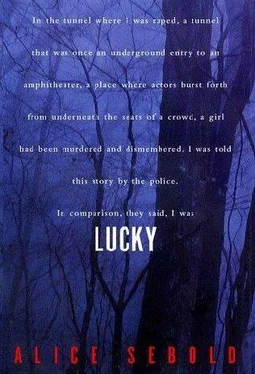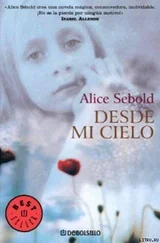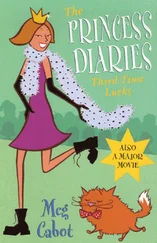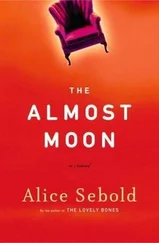Herman chose to use one sentence from my article at the beginning of her chapter called "Disconnection." The sentence, as it appeared, is this: "When I was raped I lost my virginity and almost lost my life. I also discarded certain assumptions I had held about how the world worked and about how safe I was." It appeared on page fifty-one of a three-hundred-page book. I read the sentence and my name again in the bookstore before purchasing it. It was not obvious to me until I was riding home on the subway. In a book called Trauma and Recovery, I was cited in the first half. I decided not just to keep the book as a memento, but to actually read it.
They do not have a normal "baseline" level of alert but relaxed attention. Instead, they have an elevated baseline of arousal: their bodies are always on the alert for danger. They also have an extreme startle response to unexpected stimuli… People with post-traumatic stress disorder take longer to fall asleep, are more sensitive to noise, and awaken more frequently during the night than ordinary people. Thus traumatic events appear to recondition the human nervous system.
Paragraphs like this began the most gripping read I had ever had: I was reading about myself. I was also reading about war veterans. Unfortunately, my brain went into overdrive again. I spent a week in the main reading room of the New York Public Library plotting a novel that would use PTSD as the great equalizer, bringing together women and men who suffered from the same disorder. But then, in the midst of the narratives I read, I lost the will to intellectualize it.
There was a collection of first-person accounts of Vietnam that I read over and over again and kept on reserve. Somehow, reading these men's stories allowed me to begin to feel. One particularly affected me, the story of a hero. He had seen heavy action, and watched as his friends were cut down. He bore it all stoically. I couldn't help but think of Bob.
This vet got home, received decoration, held down a job. Years later, he fell apart. Something gave. The hero could not hold. He became a man by crumbling. The account left off in process. He was out there somewhere, working on it. I'm not part of any religion but I prayed for that vet and for Bob.
I read Herman's entire book. It wasn't a magical cure but it was a start. I also had a good therapist. She had actually used the words post-traumatic stress a year before but I had dismissed them as so much psychobabble. True to form, I did everything the hard way: wrote a column, got it quoted, bought the book, and recognized myself in the case histories of the sick. I had post-traumatic stress disorder, but the only way I would believe it was to discover it on my own.
While I was living on 106th, my boyfriend worked late bartending, and I spent the evenings alone. I watched a lot of television. It was an old tenement house in a bad neighborhood. It was what I could afford in New York City on an adjunct's salary. I lived behind gated windows, and the nights were regularly peppered with automatic fire. Tech-9's were the gun of choice in the neighborhood then.
One night I'd turned the toaster on while coffee was brewing. I blew a fuse. The fuse box was down in the basement. I had to go outside and down a dark stairwell to get there. I called my boyfriend at work. He was brusque. A large crowd had just entered the bar. "What do you want me to do about it? Take a flashlight and do it or sit in the dark. Those are your choices."
I decided I was being stupid, helpless. I used something I had learned in therapy, "inner talking," to psyche myself up for the chore. It was around 11:00 P.M. I reasoned this was not as bad as 2:00 A.M. To say the least, my inner talking was faulty.
Down two flights and out into the street, around the corner, over a wrought-iron gate whose lock had rusted shut, down the outdoor stairs, turn on the flashlight. I found the keyhole, inserted the key, got inside. I turned the latch on the inside and stood for a moment against the wall. My heart was racing. It was pitch black and windowless in the basement. My flashlight trailed across a far wall with rooms tunneling into the back. I made out the possessions of a Dominican man who had been evicted a month or two before. I heard rats squeaking in annoyance as my light discovered them.
Focus, I said to myself, the glass fuse cold in my hand, and then I heard a noise. I shut off my light.
It was outside. Against the door. People. Soon, by listening through the door to their Spanglish, I understood I would have to wait awhile. I stood two feet from them as he slammed her against the door. "Fuck me, bitch," he yelled. I stepped back as far as I could, but staying near the fuse box, what I had come to do, seemed better than going farther into the dark rooms of a sealed-off basement. Once the landlord's nephew had lived down here, my boyfriend told me. He had been a crackhead and someone had come in one night and shot him to death.
"That's why she won't rent to Dominicans anymore," he told me.
"But she's Dominican."
"Nothing makes sense up here."
Outside, the man grunted and the woman didn't make a sound. Then the two of them finished. They left. He called her some name in Spanish and laughed at her.
For the first time, I allowed myself to feel really scared. I changed the fuse and worked myself up to get back inside. My only goal was safety now, and inside the building upstairs was safer than down here, buried in the dust with the rats, the ghost of a murdered crackhead, and a door against which a girl had just been fucked.
I made it.
That night I decided to leave New York. I remembered reading that many of the men, upon returning from Vietnam, were drawn to places like rural Hawaii or the Florida Everglades. They were recreating the environment they knew best, where their responses to things seemed more natural than they did inside suburban homes scattered across the less lush and green United States. This made sense to me.
I'd always lived in bad neighborhoods except once, when I lived over a wife beater, in Park Slope, Brooklyn. New York meant violence to me. In the lives of my students, in the lives of those on the street, it was commonplace. All this violence had reassured me. I fit in with it. The way I acted and thought, my hypervigilance and nightmares, made sense. What I appreciated about New York was that it didn't pretend to safety. On the best of days it was like living in a glorious brawl. Surviving this year by year was an honor mark that people wore proudly. After five years you earned bragging rights. At seven you began to fit in. I had made it to ten, almost dyed-in-the-wool by the projected East Village shelf life, then, all of a sudden and to the surprise of those who knew me, I left.
I went back to California. I took Bob's job at Dorland while he was away. I lived in his cabin and took care of his dog. I met the colonists and showed them around, taught them how to light a fire in their woodstoves and taunted them with the specter of kangaroo rats, mountain lions, and the supposed ghosts that roamed the place. I didn't talk about myself much. No one knew where I was from.
On the Fourth of July, 1995, I was working on a story inside my cabin. It was dark out. The place was deserted. The colonists had gotten together and gone into town. I was alone except for Shady. I hadn't written much in the past two years, since the two months I'd been at Dorland as a colonist. It seemed unfathomable to me that it had taken so many years to come to terms with my rape and Lila's, but I had begun to accept that it had. It left me with a feeling I couldn't describe. Hell was over. I had all the time in the world ahead.
Shady ran into the cabin and rested her chin on my lap. She was scared.
"What is it, girl?" I said, patting her head. Then I heard it too; it sounded like thunder, a summer rain coming on.
Читать дальше












